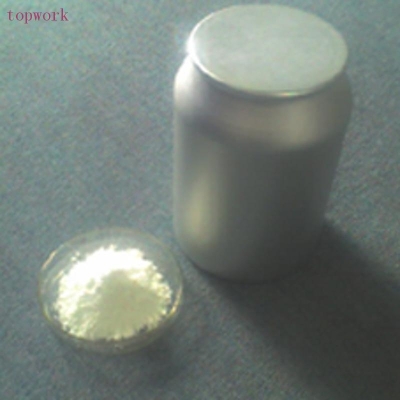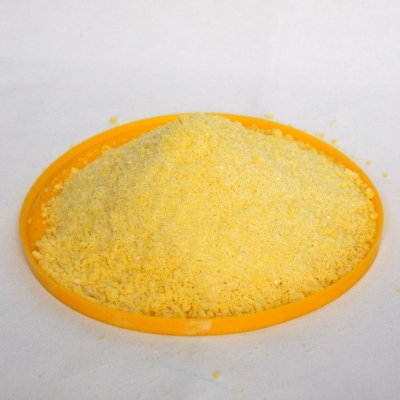-
Categories
-
Pharmaceutical Intermediates
-
Active Pharmaceutical Ingredients
-
Food Additives
- Industrial Coatings
- Agrochemicals
- Dyes and Pigments
- Surfactant
- Flavors and Fragrances
- Chemical Reagents
- Catalyst and Auxiliary
- Natural Products
- Inorganic Chemistry
-
Organic Chemistry
-
Biochemical Engineering
- Analytical Chemistry
-
Cosmetic Ingredient
- Water Treatment Chemical
-
Pharmaceutical Intermediates
Promotion
ECHEMI Mall
Wholesale
Weekly Price
Exhibition
News
-
Trade Service
*For medical professionals only
Hurry up and collect!
AuthorLv Xiong
On December 10, the State Council Joint Prevention and Control Mechanism press conference reported that the elderly over 60 years old and patients with underlying diseases are at risk of severe disease after infection with the new crown virus, and diabetes is one of
the underlying diseases.
Diabetic patients are in a state of hyperglycemia for a long time, the body's ability to defend against infection is low, and the risk of infection with the virus will increase; In addition, too much glucose in the blood can stimulate an inflammatory response, produce reactive oxygen species and cause oxidative stress
.
Moreover, high blood sugar can also destroy the endothelial function of blood vessels, promote thrombosis, and induce the occurrence
of new crown severe or even critical disease.
Due to the relatively low immunity, diabetic patients often have some comorbidities once infected, and even lead to the aggravation of the original chronic complications, and may face a higher risk of death [1].
What happens to blood sugar changes in diabetic patients after they are positive? 1.
As a stress response, fever can stimulate the body to secrete a large number of stress hormones (such as glucocorticoids, epinephrine, glucagon, etc.
), these "stress hormones" have the effect of antagonizing insulin, which can lead to a significant increase in blood sugar, and even induce "ketoacidosis"
.
2.
Fever can cause discomfort and decreased appetite, which may cause blood sugar to drop
.
In addition, anxiety, insomnia, reduced activity, irregular meals and medication can also have a certain impact
on blood sugar.
What should diabetics pay attention to after impotence?
1.
Strengthen blood glucose monitoring
.
After diabetic patients are impotent, due to fever, diarrhea, loss of appetite, irregular eating and other reasons, blood sugar fluctuations may be large, and hypoglycemic shock or ketoacidosis
will occur in severe cases.
Therefore, diabetic patients should strengthen the monitoring of blood glucose and urine ketones to detect and deal with blood glucose in time
.
During the infection of diabetic patients, blood glucose can be detected according to the time points before three meals, after three meals, before bedtime, and fasting, if the blood sugar fluctuates abnormally in the morning, it is necessary to test blood glucose
at 2 or 3 o'clock in the morning.
2.
The new crown drug is mainly symptomatic treatment of fever, cough and other symptoms, and the commonly used metformin, insulin, dipeptidyl peptidase 4 inhibitor (DPP4i), glucagon-like peptide-1 receptor agonist (GLP-1RA) and other hypoglycemic drugs have no obvious interaction, after diabetic patients impotence, Do not change or stop hypoglycemic drugs
at will.
3.
Choose fever reducers and cold medicines
carefully.
(1) Diabetic patients should be cautious about using hormonal drugs (such as dexamethasone) to cool down, because hormone drugs have a certain effect
of raising blood sugar.
(2) Before taking cold medicine, you should carefully check the drug insert, check the drug ingredients, and note that some drug inserts indicate that diabetic patients need to use
with caution.
(3) Avoid overdose, frequent medication, repeated medication, acetaminophen and ibuprofen can not be combined, some cold medicines such as cold spirit granules, etc.
, contain acetaminophen, in principle, not combined with antipyretic drugs
.
(4) Some cold medicines (such as pseudoephedrine hydrochloride, etc.
), containing vasoconstrictors, have the effect of constricting blood vessels and raising blood pressure, and diabetic patients with hypertension and cardiovascular and cerebrovascular diseases should not be used
.
(5) When coughing with sputum, it is best to choose sugar-free preparations such as Ambroxol and fresh bamboo drain, and try not to use sugary cough drugs (such as acute bronchose syrup) to avoid blood sugar fluctuations, if there is no choice to use it, you should do a good job of blood glucose monitoring or adjust carbohydrate intake
.
(6) Ibuprofen and acetaminophen have antipyretic and analgesic effects, and can reduce fever, but the side effects are different, and diabetic patients need to choose drugs
based on their own conditions.
Overdose use of acetaminophen can cause severe liver damage, and ibuprofen
is recommended for diabetic patients with hepatic insufficiency.
Ibuprofen can cause fluid retention, increase cardiovascular and renal pressure, and irritate the gastrointestinal mucosa, so diabetic patients with heart disease, renal insufficiency or gastrointestinal problems are more recommended to choose acetaminophen
.
4.
Always stock the following items
.
List of recommended items
5.
Scientific control of diet
.
After being infected with the new crown, diabetics still have to ensure "eating and drinking well", which will be of great help
to self-healing.
According to the 2022 Medical Nutrition Treatment Guidelines for Diabetes, if you want to control blood sugar, you should eat scientifically:
- Staple foods should be moderate, and the function ratio of daily carbohydrates should be 45%-60%;
- Refined grains and coarse grains are mixed and matched, and whole grains and miscellaneous legumes should account for one-third of the total staple food intake;
- It is recommended that the daily intake of vegetables is about 500g, dark vegetables account for more than 50%, vegetables and fruits should be low GI, and eating vegetables first and then staple foods can alleviate the rise rate of blood sugar to a certain extent;
- Scientific intake of protein, preferably fish, poultry, meat, eggs and soy products, these foods are rich in high-quality protein, help regulate sugar metabolism, cooking less oil and less salt, edible salt does not exceed 5g per day;
- adequate intake of micronutrients;
- A variety of micronutrients have the effect of improving blood sugar and diabetes complications, such as vitamin A, vitamin C, vitamin E, folic acid, vitamin D, zinc, chromium, etc.
[3].
How are hypoglycemic drugs adjusted?
At present, no effect of the new coronavirus on hypoglycemic drugs has been found
.
After the yang, diabetic patients should not stop hypoglycemic drugs at will, unless the following conditions occur:
1.
If you can eat three meals normally, and the amount of staple food eaten at three meals is similar to usual, you can take hypoglycemic drugs as usual;
2.
Although normal meals can be guaranteed, when the amount of staple food is significantly reduced compared to usual, it needs to be adjusted
according to the drugs you take.
Adjustment strategies and hypoglycemic risks are as follows:
hypoglycemic drugs that do not cause hypoglycemia alone but can cause hypoglycemia in combination with other hypoglycemic drugs, such as metformin, α-glucosidase inhibitors, thiazolidinediones (TZD), DPP4i, and sodium-glucose co-transporter 2 inhibitors (SGLT-2i)、GLP-1RA
。
List of
drugs Drugs that can cause hypoglycemia are used alone, such as insulin, insulin secretagogues-sulfonylureas, insulin secretagogues-glinides
.
List of drugs
3.
Do not want to eat at all, can only drink water or juice, lemonade, etc.
, in this case all hypoglycemic drugs need to be suspended to prevent hypoglycemia, but need to strengthen blood sugar monitoring
.
When should I go to the hospital?
On December 8, the Comprehensive Group of the Joint Prevention and Control Mechanism of the State Council issued the "Guidelines for Home Treatment of People with New Coronavirus Infection", recommending that asymptomatic or mildly symptomatic infected people with stable underlying conditions be treated
at home.
For diabetic patients, it is the same, there is no need to go to the hospital immediately in a panic, but when the condition continues to worsen, you should go to the hospital in time
.
Please go to the hospital in time when:
difficulty breathing, shortness of breath, rapid respiratory rate or chest tightness and shortness of breath;
High fever does not subside, body temperature continues to exceed 38.
5 °C, more than 3 days;
"three more and one less" symptoms aggravate, and obvious digestive tract reactions (nausea, vomiting, abdominal pain, etc.
), severe dehydration and other symptoms (dry and chapped lips and tongue), unconsciousness, deep breathing, exhaled air with a rotten apple smell;
Persistent blood glucose (fasting or preprandial blood glucose levels greater than 13.
9 mmol/L, postprandial or random blood glucose levels exceeding 17 mmol/L) or frequent severe hypoglycemia [4].
References:
[1] Expert tips: Patients with chronic diseases are at higher risk of severe disease caused by infection with the new coronavirus, and need to pay attention to protection.Beijing News.
December 10
, 2022.
Guidelines for the prevention and treatment of type 2 diabetes in China (2020 edition), Chinese Journal of Diabetes, 2021, 13(4): 315-409
.
[3] Public Guidelines for the Prevention of Novel Coronavirus Pneumonia: Interim Guidelines for Dietary Nutrition.
[4] People's Network: What symptoms do people with new crown infection need to go to the hospital? Expert explanation
.
The web version of the doctor's station is online
Please scan the QR code below or click to read the original article, you can browse more endocrine frontier information without downloading
Responsible editorTangerine
Call for Papers The Medical Endocrinology Channel welcomes your submissions! Click the link below or scan the QR code to submit: https://titan.
yishengzhan.
cn/#/public_contribution Please fill in the real information according to the call page*"The medical community" strives to publish the content professional and reliable, but does not promise the accuracy of the content; Relevant parties are requested to check
separately when adopting or using it as a basis for decision-making.







